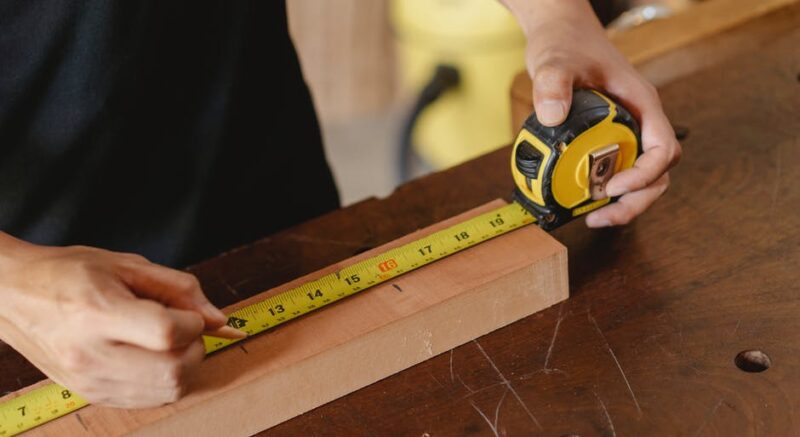5 High Tech Measuring Tools You Should Try For Your Next DIY Project

What’s your next big do-it-yourself project? You might be planning to do some woodworking, or maybe you’re in the early stages of some home renovation. Whatever you’re working on, you’ll probably need some measuring tools.
Measurement tools are a key part of any toolbox. Getting precise measurements is often the first step of a crafting project, and every handyman knows the wisdom of the phrase, “Measure twice, cut once.”
Many people don’t realize how far measuring tools have come, though. Gone are the days of liquid levels and plastic measuring tape; now, you can get high-tech, high-precision versions of most measuring tools.
Keep reading to learn about five types of measuring tools you should try for your next project.
Table of Contents
Toggle1. Digital Tape Measures
Measuring tape is one of the most well-known linear measurement tools available. You can use a traditional measuring tape to measure the length of fabric, wood, or a room, but it comes with a few issues.
The biggest issue is a lack of precision–the tape moves around while you’re trying to measure. A digital tape measure uses a laser for measurement, guaranteeing accuracy. A digital tape measure can store that data, too.
2. Laser Levels
Many projects require you to keep an object straight and level. In the past, liquid levels were the tool of choice for that job, but today, a laser measuring tool is much more effective.
Most laser levels have an internal pendulum that helps them self-level. In other words, they to give you a perfectly level laser guide to follow. You can also lock them at an angle of your choice.
3. Micrometers
When working on a mechanical project, you may need a micrometer. These tools measure the diameter and thickness of objects; there are several specialized types of micrometers for different jobs.
Micrometers are mostly used to measure small parts, so extreme accuracy is necessary. Advanced micrometers use lasers to get the most accurate readings possible.
4. Digital Calipers
Like micrometers, calipers measure an object’s thickness. Calipers have a much larger measuring range than micrometers, though; this comes at the cost of some precision.
Digital calipers are highly accurate, but that isn’t their only advantage. They can also transmit their measurements to other devices, making it easy to store and export your measurements as needed.
5. Multi-Scanners
If you’ve ever done home renovations, you’ve likely used a stud finder. Multi-scanners serve a similar purpose, but they detect more than just studs–they also find pipes, wires, and more.
Multi-scanners use radar to find these objects. They make a noise and flash a light when they detect something. Advanced multi-scanners have center-finders and other features to make them even more useful.
Add These Measuring Tools to Your Toolbox
Measuring tools are some of the most versatile tools you can add to your collection. Nearly every DIY project involves some kind of measurement; use the high-tech tools listed above to get maximum precision every time.
Smart tools aren’t the only high-tech devices that can help out around the house. Visit our technology and gadgets blog to read the latest news about cutting-edge gizmos that can make your life easier!
Jeff Bailey is a tech enthusiast and gadget guru with a profound understanding of the ever-evolving world of technology. With a keen eye for innovation and a passion for staying ahead of the curve, Jeff brings insightful perspectives on the latest gadgets and tech trends.
Recommended For You
Spread the loveInstagram is a visually driven platform, and understanding how aspect ratios work can significantly impact the success of
Spread the loveHave you ever received a call from an unknown number, and upon searching online, found nothing but dead
Spread the love/zzmxuo4he_c for Non Techies A Step by Step Guide is a guide that will teach you the basics






